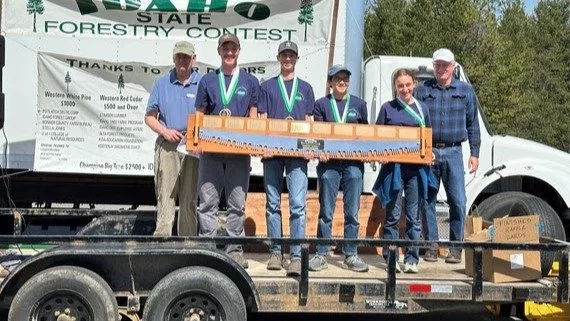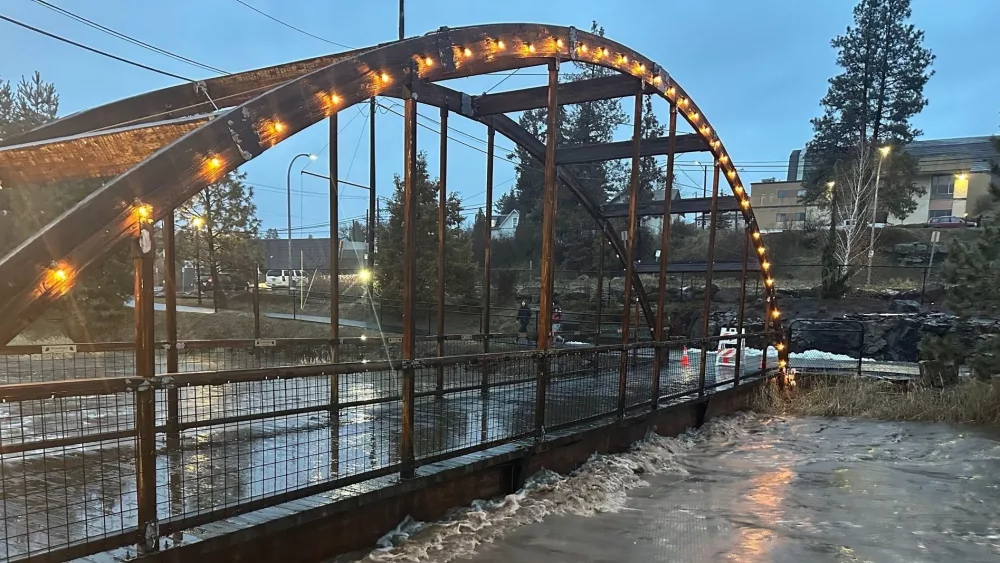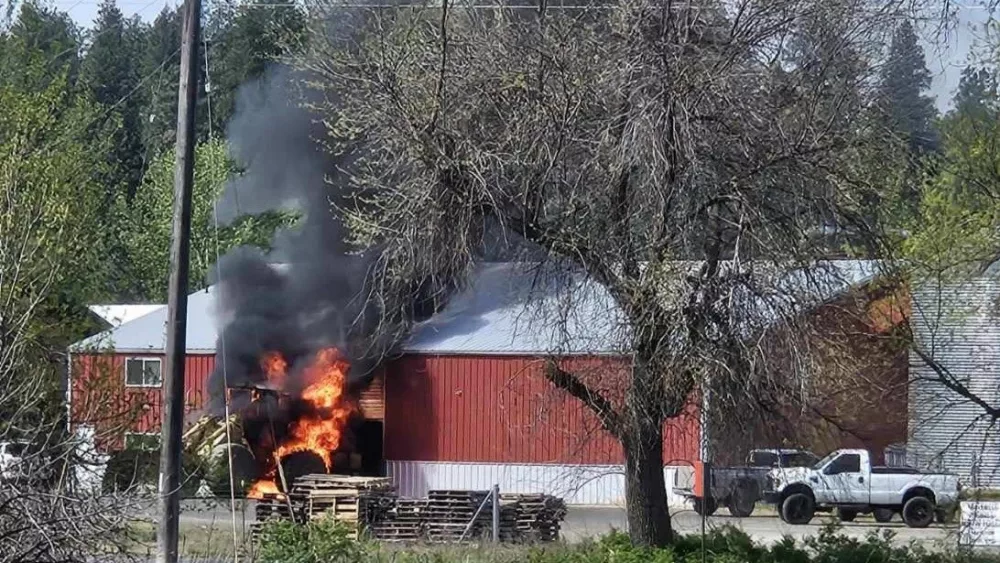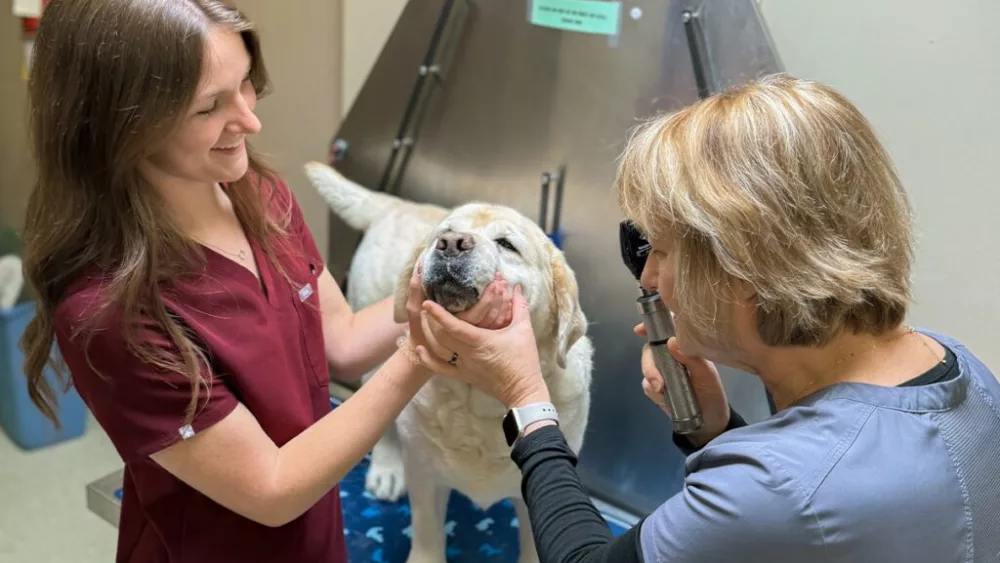PULLMAN – Washington State University and FFA teamed up this fall for a statewide event designed to get high school and middle school students excited about careers in agriculture.
Held last month, and covering nine Washington FFA districts, the Evergreen Leadership Tour spanned 1,400 miles and seven different stops at high schools and fairgrounds in locations ranging from Castle Rock to Colfax. More than 1,700 students and nearly 200 agriculture teachers attended, with many taking part in workshops presented by state FFA officers and WSU students.
WSU representatives oversaw a Teach Ag session encouraging students to become agriculture teachers. The workshop was funded by WSU’s College of Agricultural, Human, and Natural Resource Sciences as well as the National Association of Agricultural Educators’ State Teach Ag Results Program.
Anna Warner, assistant professor of agricultural education, worked closely with WSU alumnae Kaitlyn Wright and Kaitlynn Davis to develop the workshop’s content. Warner, who also serves on the Washington FFA Association’s board of directors, believes young people should be shown agricultural career options.
“If students are exposed to agriculture and the professions within it early on, they’re more likely to pursue a career in those fields,” she said.
The decades long agriculture teacher shortage in Washington can be attributed to many variables, including teacher retirement, educator salaries, and a lack of diverse representation in the field.
A vicious cycle often occurs: If schools lack agriculture teachers, positions can be cut, limiting opportunities for students to take those classes and potentially become agriculture teachers themselves. Many programs are put on pause or closed completely.
The Evergreen Leadership Tour is just one way WSU is working to address the issue. The university also created an agricultural education career development event for FFA and is working on professional development tools designed to retain those already in the field.
The importance of agriculture education goes beyond the classroom. Many individuals are three or more generations removed from a farm, lacking the agricultural literacy once prevalent in society. The result is decreased awareness of where food comes from, how it is prepared, and what grocery store labels mean.
“Part of ag education is about helping students be informed consumers, informed voters, and agriculturally literate citizens,” said Warner.
“The good news is, we had increased program enrollment this year,” she added. “Ag education is a great field to pursue because we can almost guarantee multiple job offers for our students.”
Wright, who plans to earn a master’s degree in teaching at WSU, and Davis, who is currently pursuing a master’s degree in agriculture, led the tour’s Teach Ag workshop. Seven WSU undergraduates also participated. It was Wright’s first time helping with an event like this.
“My favorite part was learning about the students’ passions, the different reasons they joined FFA, and why they love agriculture. There were so many different stories!” she said.
Wright extolled the wide range of learning opportunities that FFA offers.
“FFA is beneficial even if you don’t want to do something agriculture related,” she said. “It teaches leadership, teamwork, and other skills. It’s important to keep that in schools.”
Davis, a former FFA member who grew up in eastern Washington, enjoyed traveling to different locations.
“My favorite part was seeing the agricultural diversity throughout the state,” she said.
The WSU workshop covered topics including what makes a good agriculture teacher and different career paths students can follow. To keep things fun, session leaders ran a “Family Feud”-style activity with agriculture-related questions.
Workshop leaders had to be flexible, adjusting to the number of participating students. With larger groups, keeping students engaged was sometimes a challenge.
WSU undergraduate Morgan Duim said her FFA experience in high school helped her decide to become an agriculture teacher. She enjoyed returning to her home district and working with students from her community.
“It’s important to show students this is an option so that ag in schools doesn’t disappear,” Duim said. “It’s hard to build that back up once it dies off. This is a fulfilling career path if you choose to make it that.”
Michael Ramirez-Martinez, another WSU undergraduate and former FFA member who helped on the tour, said participating confirmed his own career goals.
“I want to teach future generations of students and be there for them the way my advisors were for me,” Ramirez-Martinez said. “Attending the tour helped solidify that.”
The tour was also a success from an FFA perspective.
“FFA has a place for every student, and it’s just a matter of showing them where those opportunities lie,” said Dany Payne, executive director of the Washington FFA Association.
She looks forward to continuing FFA’s nearly 90-year partnership with WSU.
“This is the initial step. There are a lot more opportunities for us to work together on ag teacher recruitment,” Payne said.





